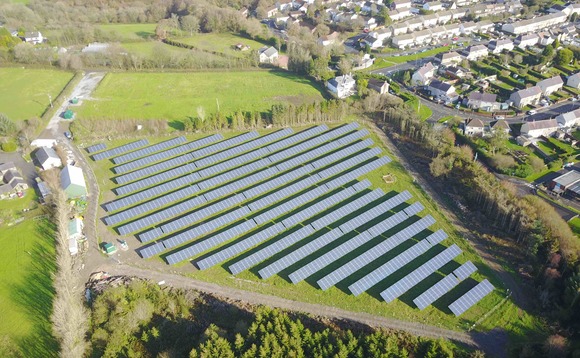The traditional annual event for consultancy and engineering firms in Wales focused on value based delivery and building a viable green economy, reports ACE Wales manager, Simon Shouler.
Covid-19 uncertainty meant that ACE Wales held its annual conference online for the first time. So, delegates traded suits and canapes for T shirts and mugs of tea – the new normal that sadly has become all too familiar. Nevertheless, neither the conference’s content nor quality of debate suffered – networking being the only casualty.
The event, Value Based Delivery - challenging what we build and how we deliver it to enable a prosperous green economy, saw more than 100 people registerer to take part on 10 November 2021 with ACE Wales chair Piers Burroughs overseeing proceedings.
Speakers at the conference included Mace’s Hannah Vickers, who highlighted the potential of the new industry Value Toolkit and laid the foundation for an excellent discussion.
Ellie Jenkins from the Construction Innovation Hub gave a very clear insight into the toolkit’s development and how the pilot studies are progressing. With the conference running in tandem with COP26, she asked a key question – should we solely focus on climate? It was a fitting prologue to the conference, as one of ACE’s aims was to bolster the construction industry during this seismic shift in government priorities, with infrastructure investment vital for a prosperous Welsh economy.
Sustainable delivery model
Jenkins took the audience through the Value Toolkit in measured detail. The model aims to drive better social, environmental and economic outcomes by facilitating value-based decision-making. It will be a more sustainable delivery model for our industry and the better outcomes flowing from that should lead to a sustainable built environment.
The toolkit fits well with the Welsh government’s policy landscape priorities of prosperous, resilient, healthier, more equal, globally responsible, cohesive communities and vibrant culture and thriving Welsh language. It’s a fit that makes it eminently suitable to deliver value in Welsh infrastructure projects.

Applying the toolkit comes down to three stages of logic. What does value mean to me (and my stakeholders) in the context of this project or programme? How am I going to measure whether something meets my value definition? And how should I tailor my approach to delivering the project and working with the market to maximise the change of delivering that value? So, a highly practical, flexible and robust delivery model that would suit public and private sector clients alike, working within policy aims and constraints.
Jenkins described the current pathfinder work and some of the headlines coming through. The most pertinent are that applying the toolkit needs suitable expertise, training and assurance, alignment to and signposting from the government’s Green Book for public sector clients and measures in place to protect key outcomes.
Key lessons from the automotive industry
Julian Hetherington from the Advanced Propulsion Centre UK spoke about the transformational shifts in market drivers that support a green economy. His opening gambit – is this a significant challenge or a fantastic opportunity to reset our ambition?
He set out the context of the climate impact of the automotive industry, the Automotive Transformation Fund, the socio-economic impact, the importance of green energy and the shift from the labour market dictating automotive industry to green energy being the industry driver. He also spoke about the move to high-skilled, high-value employment opportunities to re-engineer the entire supply chain from the ground up in a green manner.
He also highlighted the challenges associated with creating economically competitive green energy, describing the huge market appetite for this development which is creating massive national and global opportunities and making the UK a great place to invest as it has a competitive financial platform, a skilled workforce, effective infrastructure and excellent plant site opportunities. The Welsh government’s planning and timing for infrastructure investment and upskilling must be attractive to investors if Wales is not to lose out on such global opportunities.
Hetherington also spoke about the UK’s need for battery manufacturing capacity as a key part of the value chain, together with fuel cells, motors and power electronics.
Ensuring the wellbeing of future generations
The conference’s final speaker, Sophie Howe, Wales’s future generations commissioner, spoke live from the COP26 venue in Glasgow, stressing the need to ensure the wellbeing of future generations with climate change being at the top of the agenda. This theme embraced delivering in line with Wales’s policy landscape headings, mentioned previously. Key aspects being to balance society’s needs, and that of the Welsh economy, with longer term environmental and social wellbeing goals. In short, doing things differently.
Two polls were conducted during the conference. The first asked which model would stimulate social and environmental outcomes. 60% thought government and the private sector were equally important, 24% favoured an attractive and aligned public and private sector-driven model and 16% favoured government-driven policy and regulation. The second poll asked whether the current UK procurement system is fundamentally broken - 70% said at times, 27% yes and 3% no.
Key messages emerging from the conference highlighted that there will be huge potential for investment and work within Wales’s infrastructure and automotive industries, but that delivery models will have to adapt to new policies, priorities and investment opportunities. Doing nothing is not an option as Wales needs a viable economy, however, to meet zero carbon targets, the economy must green up.
The construction and automotive sectors have the knowledge, experience and flexibility to rise to the challenge and the Value Toolkit, if adopted by Welsh clients, will provide the infrastructure delivery model that is well-suited to the task ahead, but procurement reform must run in tandem and be aligned to the toolkit.
Simon Shouler is the ACE Wales manager.

